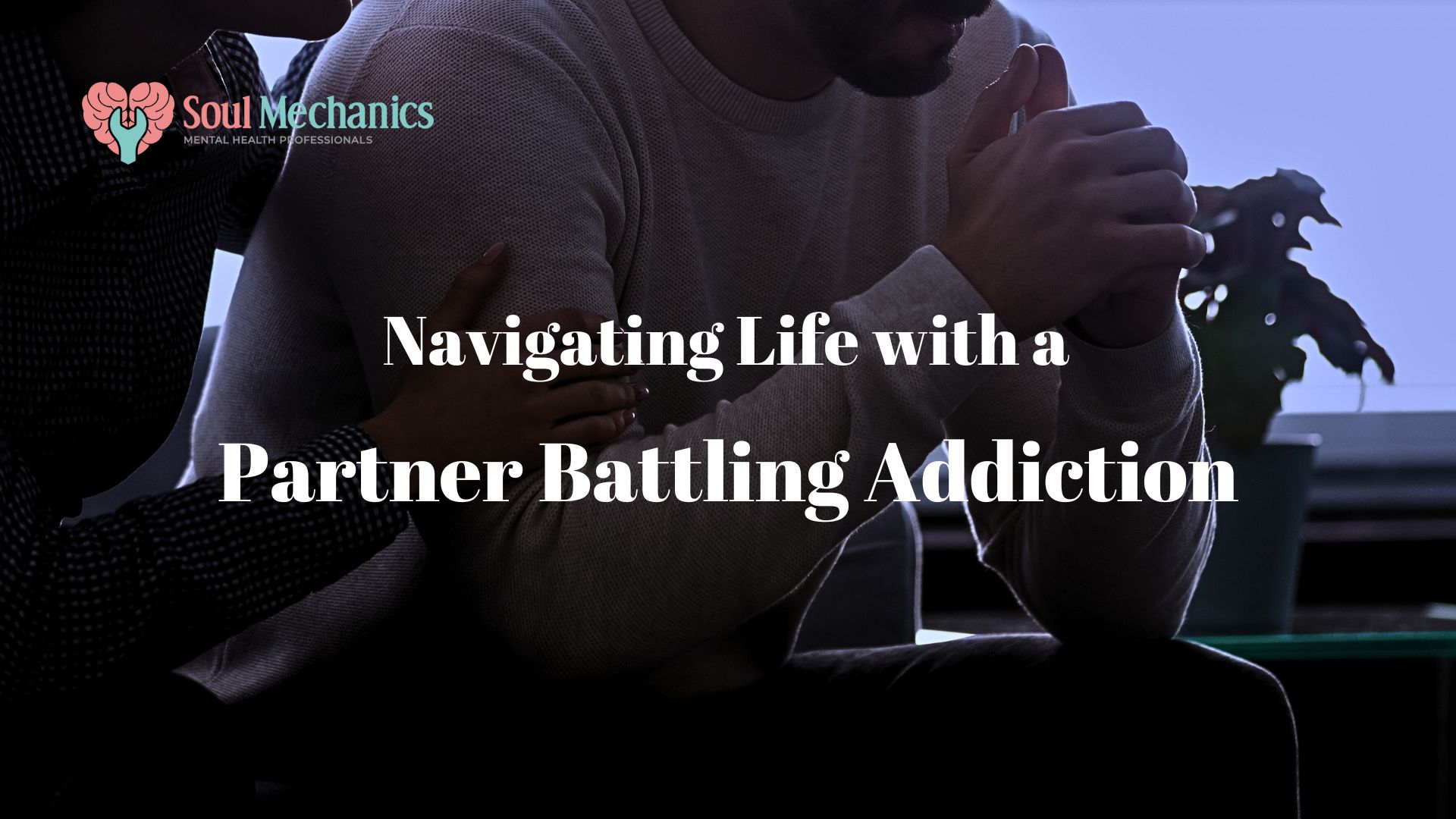Loving in the Storm: Navigating Life with a Partner Battling Addiction
Loving in the Storm: Navigating Life with a Partner Battling Addiction

Written by Jenefa Anthony | KB 11780
Loving someone who is struggling with drug addiction is like living in the eye of a storm. While moments of calm exist, chaos looms constantly. For partners, this experience is deeply emotional and profoundly challenging. The line between providing support and losing oneself in the process often becomes blurred.
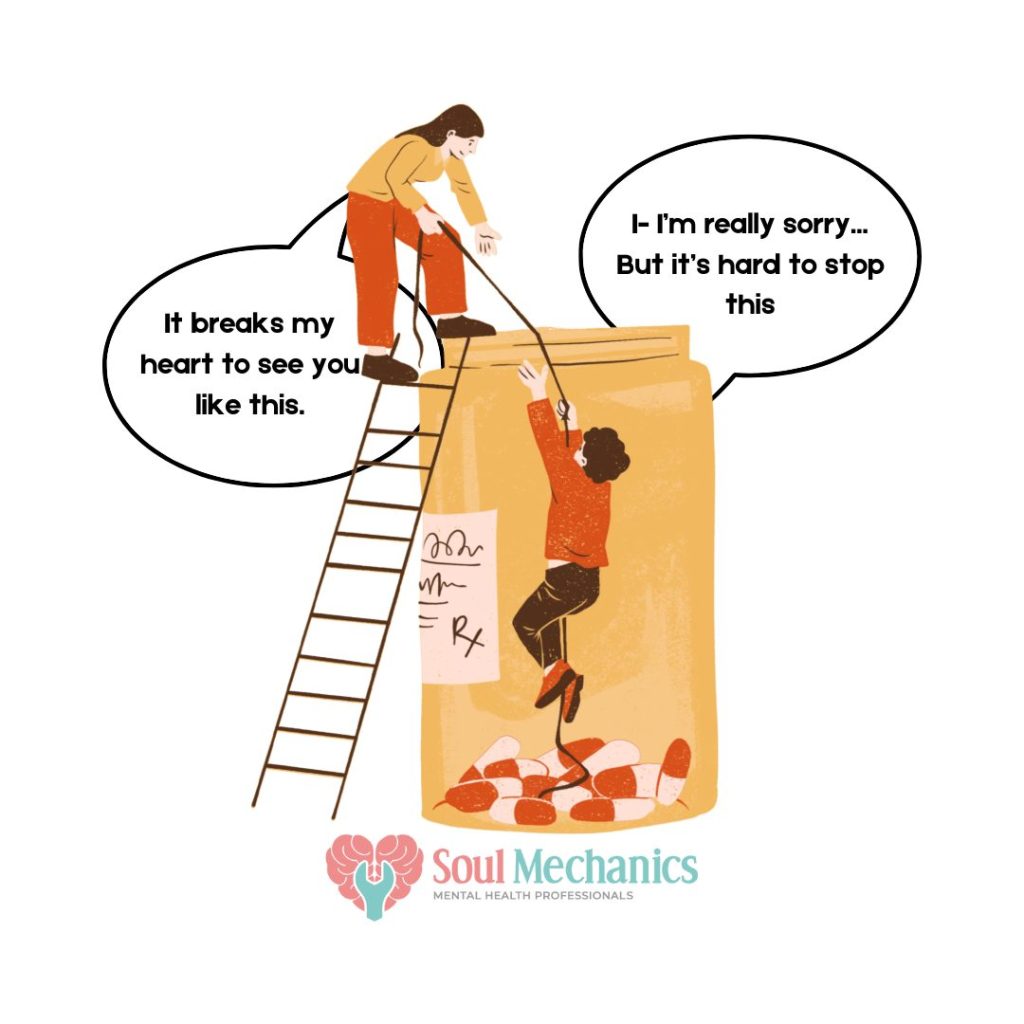
Addiction affects not just the individual but everyone around them, especially those closest. Partners endure the ripple effects—emotional distress, financial strain, and even damage to their own physical and mental health. Yet, their well-being often goes unnoticed. This article explores the emotional terrain, challenges, and strategies for navigating life with a partner battling addiction, ensuring that love and support do not come at the cost of self-preservation.
Understanding the Emotional Terrain
Being in a relationship with someone battling addiction is marked by a whirlwind of emotions—love, frustration, hope, and despair. Addiction alters relationship dynamics, often turning mutual support into an uneven, challenging bond.
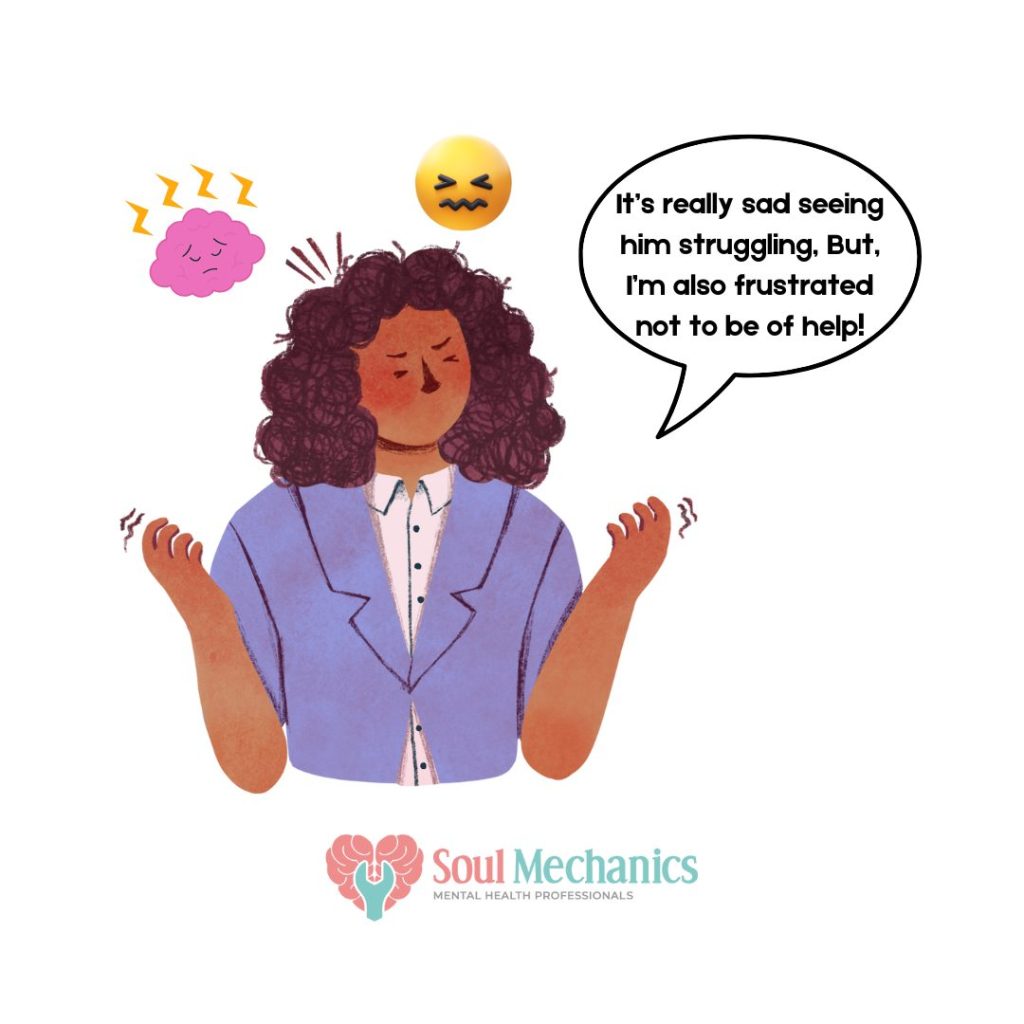
The Psychological Toll of Addiction
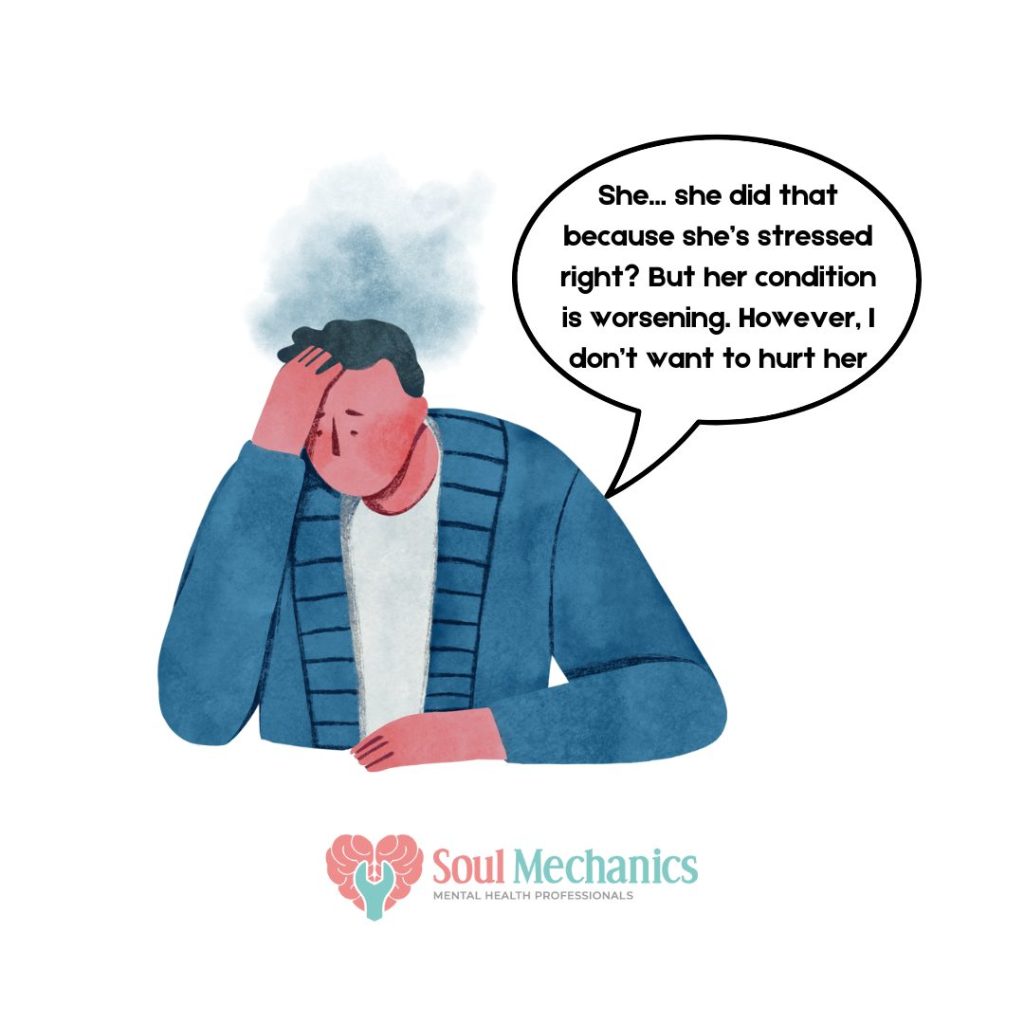
Addiction rewires the brain, prioritising drug use over relationships and responsibilities. For partners, this shift feels like a betrayal, though addiction is not a choice but a disease. This distinction is essential to understanding and coping with the emotional toll.
Cycles of Enabling and Resentment
Partners often cover for mistakes, offer financial help, or excuse harmful behavior. While well-intentioned, this can perpetuate the addiction cycle.
Broken Promises and Emotional Unavailability
Addiction frequently leads to dishonesty and withdrawal, leaving the partner feeling isolated and hurt.
Codependency and Boundaries
One common dynamic in these relationships is codependency, where a partner’s identity becomes deeply entwined with their loved one’s struggles. While motivated by care, this self-sacrificing approach can lead to burnout, resentment, and loss of personal identity.
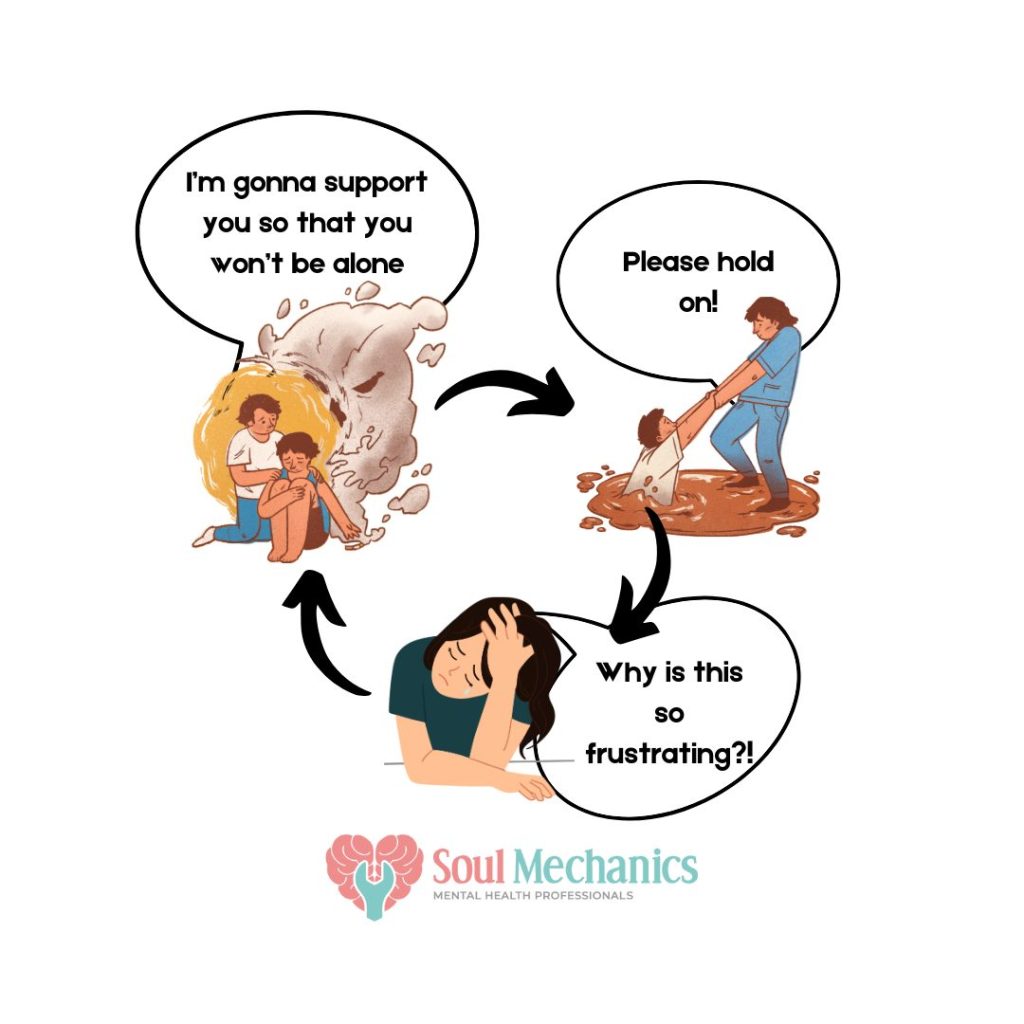
Caring for Yourself: The Anchor in the Storm
Supporting a partner through addiction requires strength, and that strength comes from prioritizing self-care and emotional resilience.
Reclaiming Your Emotional Space
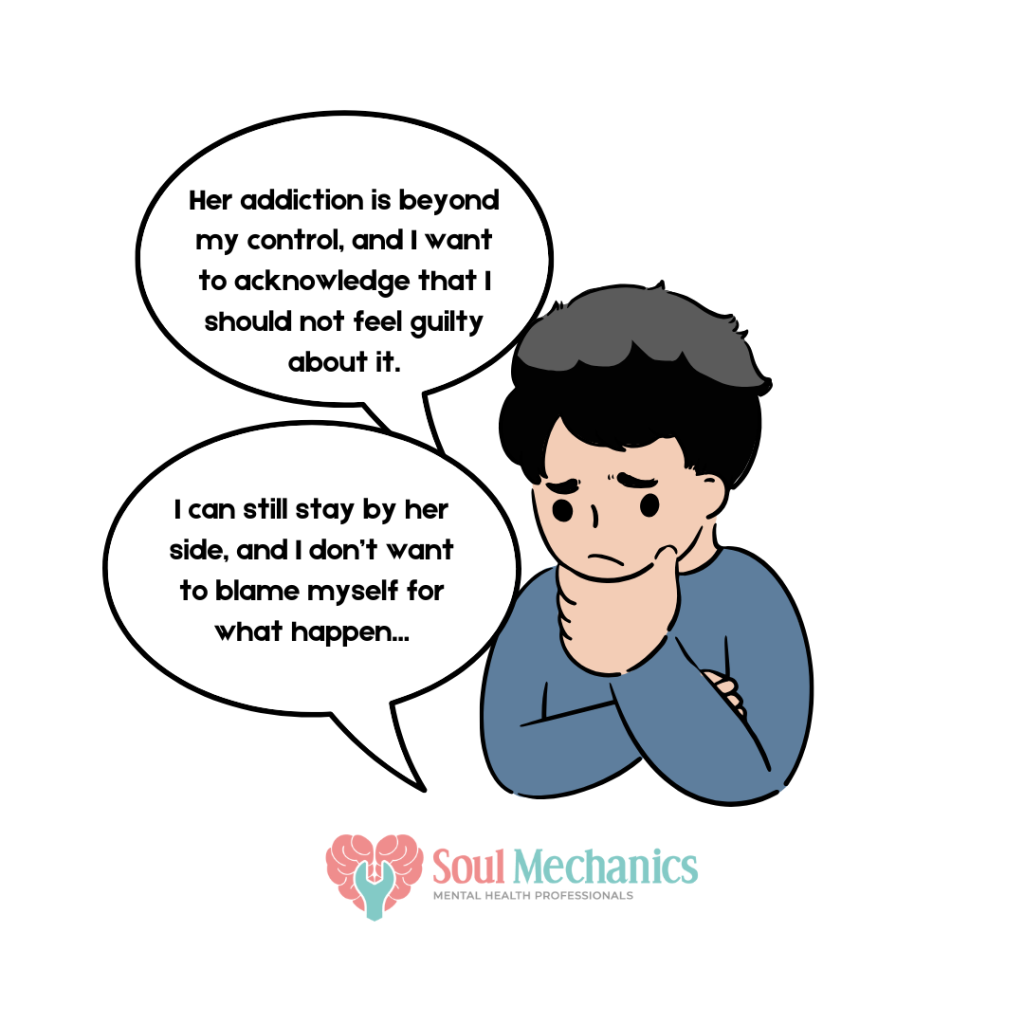
It is important to recognise you are not responsible for your partner’s addiction—it’s a result of genetics, environment, and brain chemistry. You can try to practice emotional detachment by separating your partner’s behaviour from your self-worth. Tools like mindfulness and journaling can help process feelings without being overwhelmed.
Seeking Support Systems
Join Support Groups: Groups like Al-Anon connect you with people facing similar challenges.
Therapy: Counsellors can help you develop healthy coping mechanisms and rebuild your identity outside the relationship.

Reminder: If you feel that you are experiencing difficulties with the journey of your relationship with your partner, please don't hesitate to reach out to us at Soul Mechanics KD or Soul Mechanics Ipoh. Remember, seeking help is not a sign of weakness but strength!
Engaging in Self-Care Practices
Self-care goes beyond indulgent activities; it involves building routines that support mental, emotional, and physical health. Examples of self-care practices that you can engage include exercising, having balanced nutrition, having adequate sleep, participating in hobbies and building friendships.
Supporting a Partner Without Losing Yourself
While supporting your partner, it’s essential to strike a balance between empathy and accountability.
Educate Yourself About Addiction
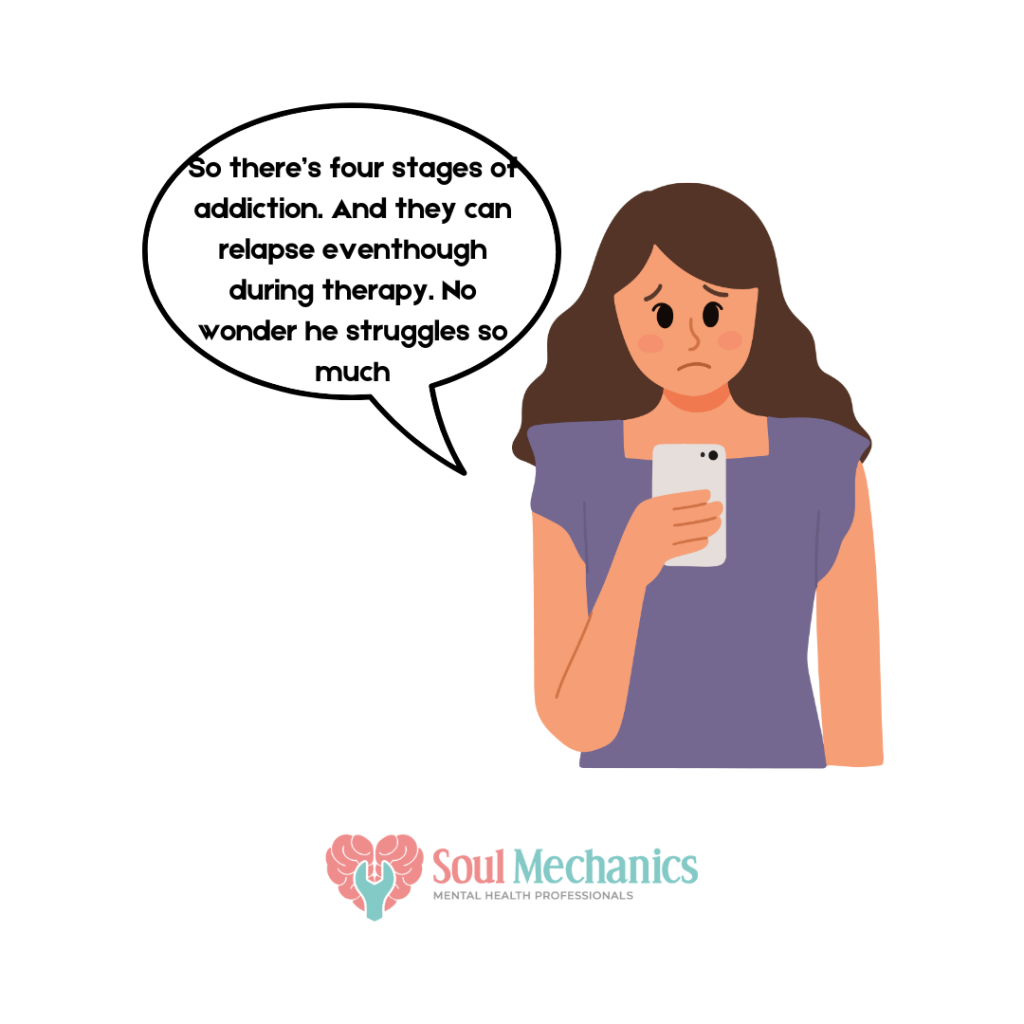
Understanding the science of addiction can help partners navigate emotional complexities. Addiction rewires the brain, making drug use a compulsive behaviour rather than a choice.
Encourage Professional Help
Try framing conversations around concerns, not blame. Instead of "You need to stop using drugs," try reframing to "I’m worried about your health and our relationship. Have you considered talking to someone about it?”

Avoid Enabling Behaviours
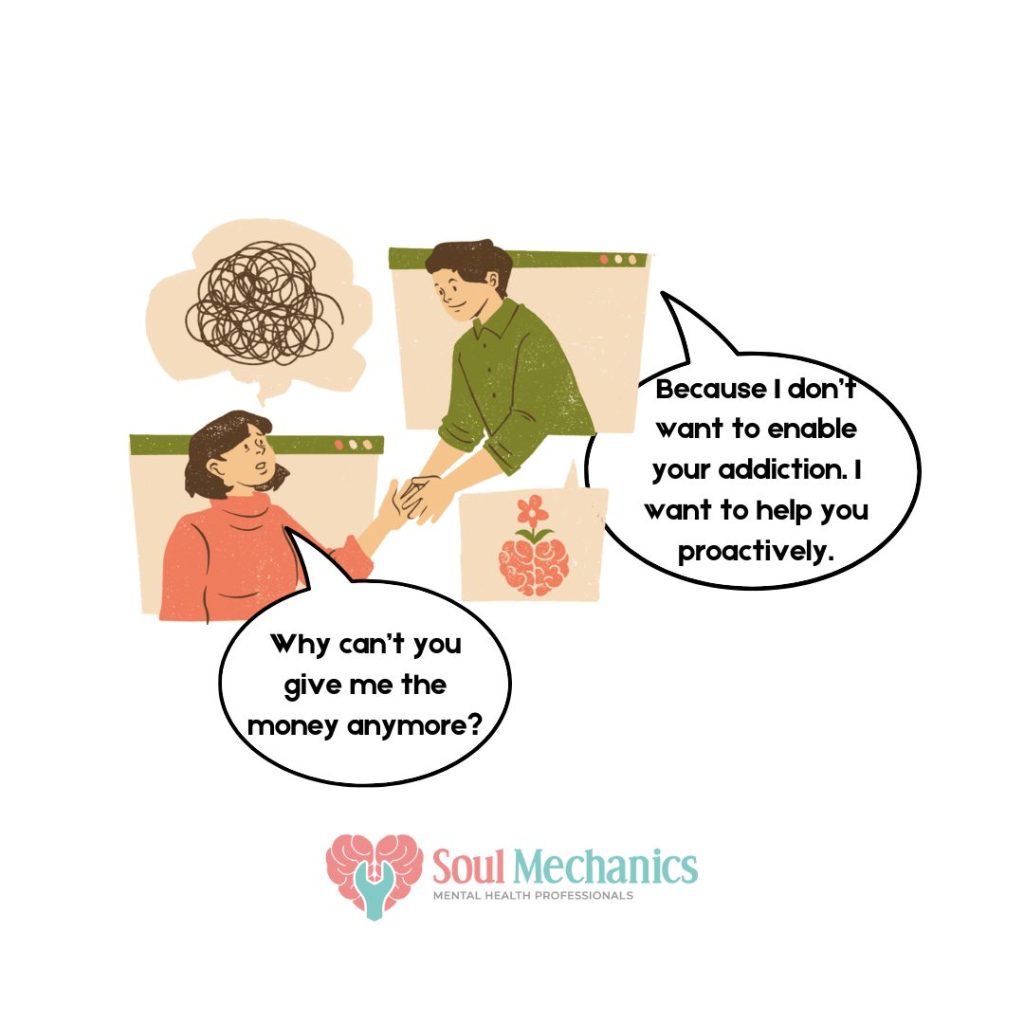
- Resist covering for missed responsibilities or providing financial support for drug-related expenses.
- Allowing natural consequences can often catalyse change.
Set and Enforce Boundaries
Boundaries may feel counterintuitive, but they are crucial for maintaining emotional well-being. Try using a more compassionate and clearer communication when establishing boundaries. For example, a boundary might sound like: "I love you, but I cannot live in a situation where drugs are present in the house."
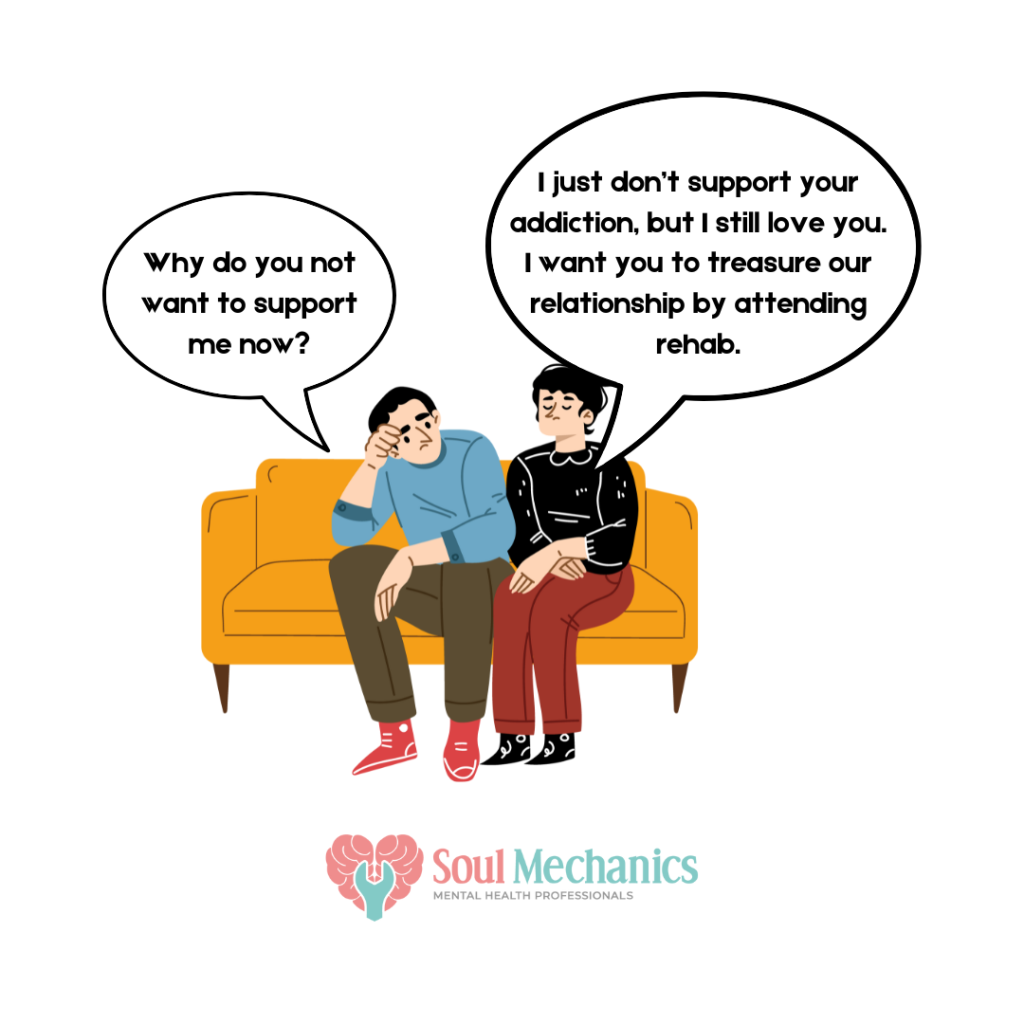
Rebuilding Trust
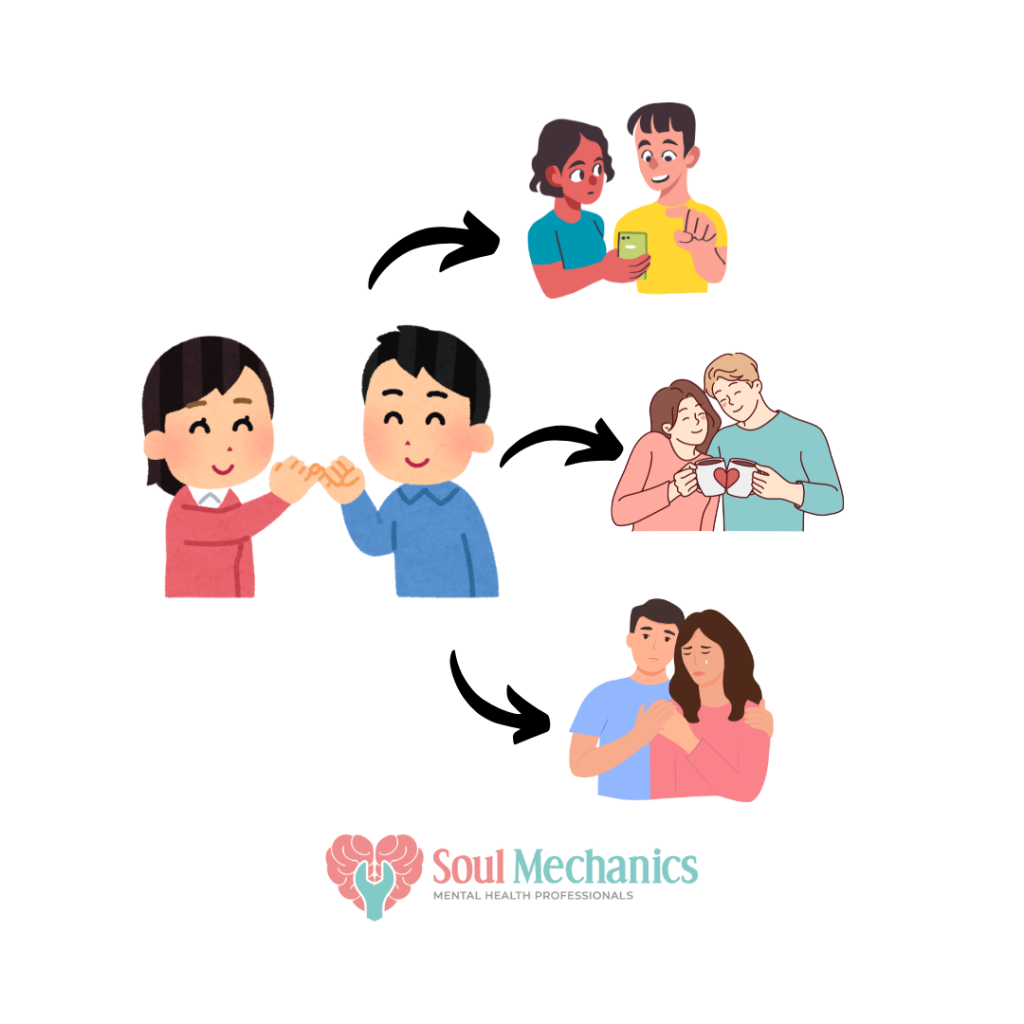
- Open Communication: Create a safe space for honesty without fear of retaliation.
- Celebrate Small Victories: Acknowledge milestones like attending therapy or short periods of sobriety.
- Foster a Team Mentality: View recovery as a shared journey, offering support while allowing your partner to take responsibility.
Navigating the Path Ahead
Loving someone with addiction is a deeply emotional experience that requires immense resilience and self-awareness. By prioritising self-care, setting healthy boundaries, and fostering an environment of empathy and accountability, partners can weather the storm of addiction without losing themselves.
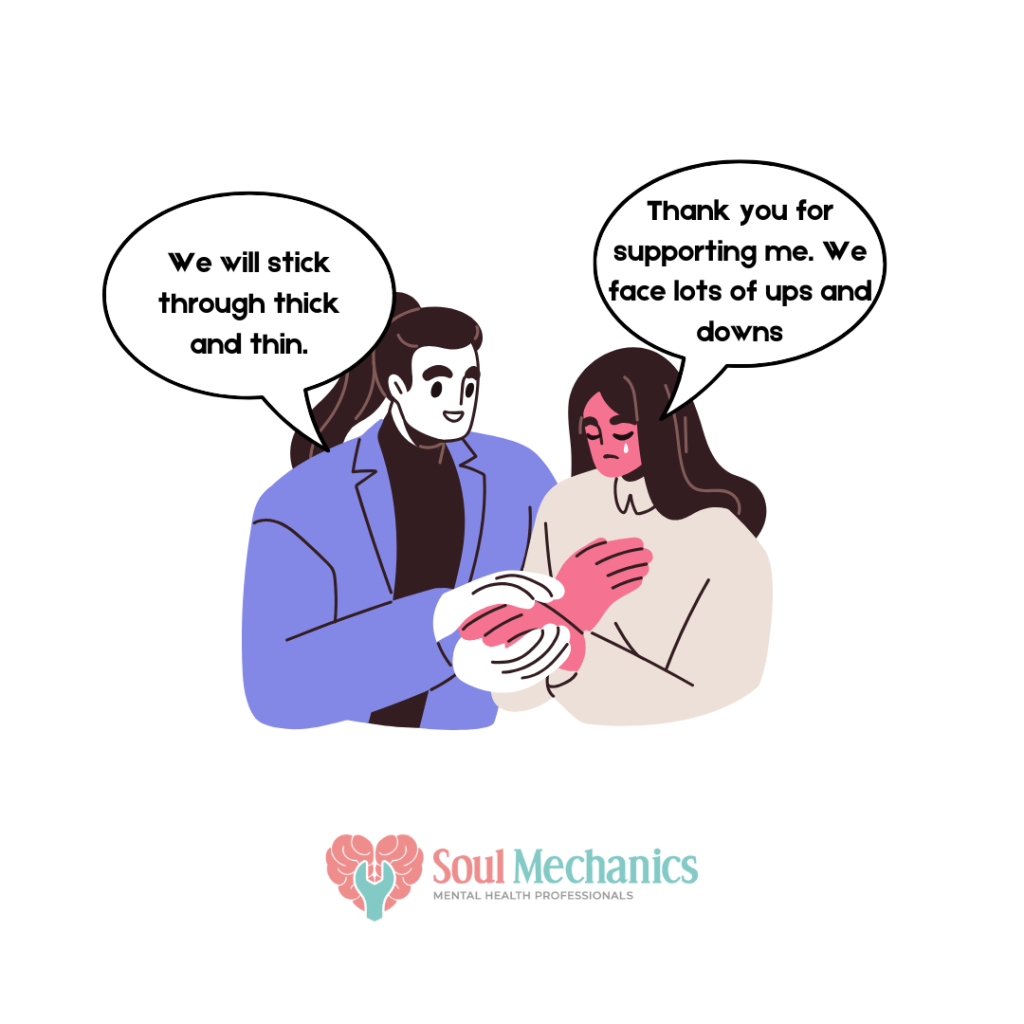
Key Takeaways:
- Educate yourself about addiction to foster empathy.
- Reclaim your emotional space through self-care and detachment.
- Set clear boundaries and follow through consistently.
- Encourage professional help while recognizing the decision to recover lies with the individual.
- Seek support systems to avoid isolation. In the face of addiction, no one has to navigate the path alone. Resources, community, and professional help can guide both partners toward healing and growth.

